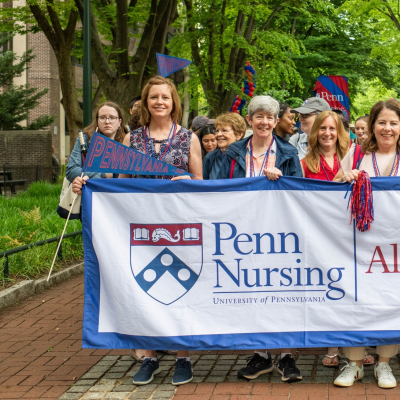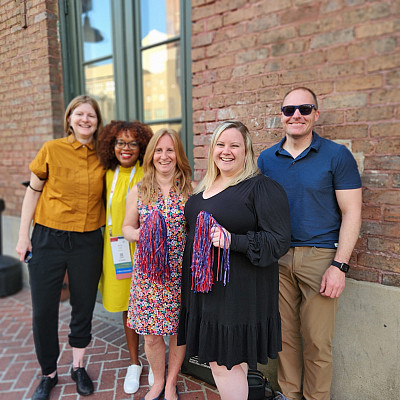Health Care and Social Justice: Perfect Together
Connecting social issues and mental illness, and improving outcomes through advocacy and health care.
Growing up in under-resourced neighborhoods in the San Francisco Bay area, Jason Jemera, MSN , PMHNP-BC, RN, GNu’21, age 26, saw substance abuse and violence all around him. The child of Filipino immigrants also saw opportunities to connect with people. “I was part of a Catholic youth group that got me engaged in being able to talk to people so easily and wanting to help the less fortunate,” he says. Jason attended Dozier-Libbey Medical High School, a public school in his hometown of Antioch, California, that is based on a medical curriculum. “So health care has always been ingrained in me.”
While enrolled at the University of San Francisco as a nursing major, “I was constantly juggling between the collegiate organizations, ethnic studies, and community advocacy work vs. my nursing academics,” he says. In fact, it was an extracurricular activity that inspired Jason to work for social justice: slam poetry. Competing on a national team, he learned about the struggles and traumas that many people grew up with. “Slam poetry is what took the lead in my wanting to advocate. I got to tell my story. If you can share your story and one person in the room can be influenced by it, you did a good job.”
While many of his slam-poetry peers became writers, Jason forged a different path. “I knew I wanted to help people,” he recalls. “Nursing was an avenue for me to do that.”
On the day Jason began his nursing career at UCLA, one of his best friends lost his life to gun violence. “He was the only other person I grew up with in my hometown who shared this vision of community-change work and health care,” says Jason. “Sometimes I push myself to carry two legacies on my back without realizing it.”
Jason worked as an RN for three years, gaining experience in adult medsurg, pediatric ICU, and cardiothoracic ICU. “But I didn’t fall in love with any of it,” he says. He felt unhappy “trying to find fulfillment in jobs that just weren’t meant for me at the base of my soul.” But as he was working in the PICU at UCLA, he observed that many of his colleagues were going back to school for their NP or their CRNA. This reminded Jason that during his senior year at USF he thought he wanted to become a psychiatric nurse practitioner.
“To me, psychiatric mental health is the bridge between clinical science and social justice,” he says. “Practitioners understand from evidence-based practice that underlying social issues—housing stability, access to food and health care, traumatic adverse childhood experiences, and racial and gender disparities—are directly related to a higher incidence of mental illness.”
But as an undergraduate, he had Nursing Solutions: Strong Neighborhood Investment Penn Nursing’s commitment to underserved neighborhoods received a Campaign boost through new student aid resources: a program for students in the dual degree Nursing Health Care Management program requires a post-grad work commitment in populations with health inequities, while a broader scholars program selects participants based on their intent to do the same. second thoughts about psychiatric nursing.
“There’s a stigma,” he says. “People still use words like ‘crazy.’ So I listened to everyone who said I should go into med-surg first.” But it didn’t last.
Once he was settled in Philadelphia for Penn Nursing’s psychiatric mental health NP program, Jason picked up a psychiatric nursing job at a hospital in an economically-challenged neighborhood. He says his psychiatric experience came mostly from what he had learned in med-surg. “I know how to talk with people who come from low-income neighborhoods,” he explains. “I know how to navigate when I’m there. My upbringing and skin color help me do that.”
While he was still in California, Jason got involved with the Social Justice League, a Los Angeles nonprofit founded to combat racial injustice and uplift under-resourced communities following the murder of George Floyd—a relationship he carried with him to Philadelphia. Through Penn’s Community Champions, he was connected with No More Secrets, a Philly organization that fights period poverty by providing feminine-care kits, clean water, counseling, and education. Ultimately, the Social Justice League donated more than 4,000 feminine-care products through No More Secrets. Why period poverty? “It was Women’s Health Month,” says Jason. “It was an issue that people don’t know about. How many times did this happen to my mom so she could put food on the table?” he asks. “There are so many women quietly struggling with this.”
While Jason misses the Bay Area, he feels at home in Philadelphia, too. Now that he is a psychiatric mental health nurse practitioner, he’ll make a decision about where he wants to live and work. In the meantime, you can find Jason in West Philadelphia, promoting social justice and lending a hand at Skate University and Power of Paint, nonprofits that use roller skating and art, respectively, in a safe space to help keep kids exposed to gun violence off the streets.
Jason’s podcast, Your Mind, Your Narrative, on Amazon, Google, Spotify, and Apple, is about how mental health intersects with our professional and social identities. Topics have included self-doubt and imposter syndrome; how BIPOC communities can benefit from therapy; burn out in health care jobs; and so much more.
Back to Issue


